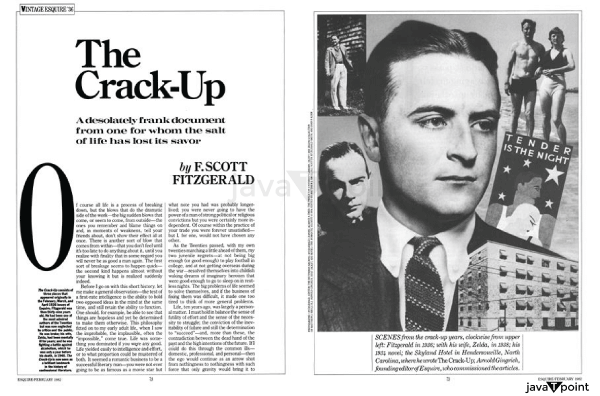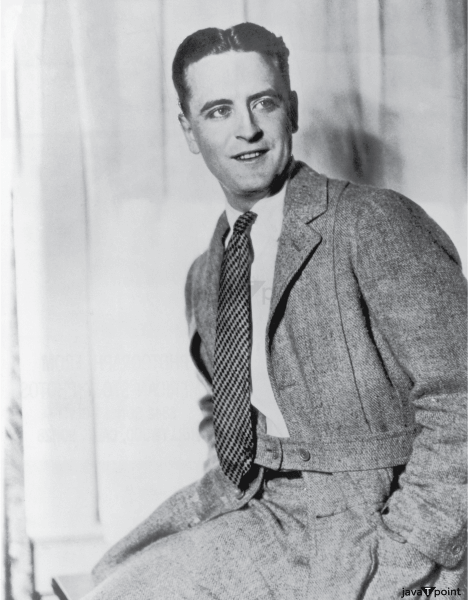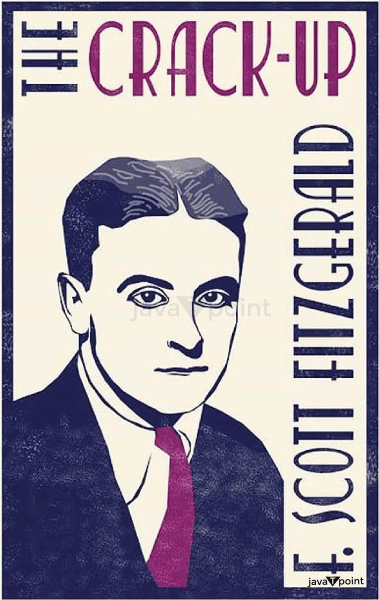The Crack-Up SummaryA compilation of papers expressing the authors' emotional states and individual viewpoints on events, other writers, & public figures in the years 1920 and 1930 is called "The Crack-Up," and it was assembled and published by Fitzgerald's friend, renowned critic & editor Edmund Wilson, following Fitzgerald's passing. This book also includes some of Fitzgerald's notebooks, including the well-known title piece. These notebooks serve as a storehouse for tales and hilarious lines as well as an intriguing look into the author's thought process. "The Crack-Up," a fascinating and varied collection that illuminates the author and his era, is a priceless complement to well-known works like "The Great Gatsby" and "Tender Is the Night." 
Fitzgerald's three-part autobiographical essay "The Crack-Up" details his mental collapse at some time in his life. His three writings seek to comprehend and explain his mental state, then list numerous contributing variables before discussing his adjustments to get through the difficult "Crack-Up" stage. Biography of Francis Scott Key FitzgeraldFrancis Scott Key Fitzgerald was an American novelist, essayist, as well as brief story writer who lived from September 24, 1896, until December 21, 1940. In his collection of short stories, "Tales of the Jazz Age," he popularised the phrase "Jazz Age," which is best recognized for its use in his novels to capture the excess and flamboyance of the era. He produced 164 short stories, four story collections, & four novels during his lifetime. Fitzgerald was briefly famous and wealthy in the 1920s but didn't acquire critical acclaim until after his passing. Today, he is considered as one of the finest American authors of the twentieth century. Fitzgerald, who was raised in a middle-class family in Minnesota's Saint Paul city, spent most of his childhood in New York State. He attended Princeton University, where he became friends with Edmund Wilson, a renowned literary critic. He left school in 1917 to enlist in the American Army during World War I due to a failed love affair with Chicago socialite Ginevra King. While stationed in Alabama, he met Southern debutante Zelda Sayre, a Montgomery's elite country club set member. Fitzgerald's lack of financial potential first caused Zelda to reject his marriage proposal, but once he released the bestseller "This Side of Paradise (1920)", she changed her mind. His status as one of the most accomplished authors of the decade was solidified by the cultural phenomenon that the book caused. 
The Beautiful and Damned, his second book, catapulted him into the ranks of the literary elite in 1922. To support his comfortable lifestyle, he frequently contributed tales to well-known publications, including The Saturday Evening Post, Collier's Weekly, & Esquire. Fitzgerald frequently travelled to Europe at this time, where he made friends with "Lost Generation" expatriate revolutionary writers and artists like Ernest Hemingway. Although The Great Gatsby (1925), his third book, garnered largely positive reviews, it was a commercially unsuccessful outcome, selling less than twenty-three thousand copies in its first year. The Great Gatsby has gained praise as the "Great American Novel" despite its unimpressive beginning. Tender Is the Night, Fitzgerald's final book, was finished in 1934 after his wife's psychological condition began deteriorating, and she was admitted to a mental hospital for schizophrenia. Fitzgerald came to Hollywood, where he began a fruitless career as a screenwriter since he was having financial difficulties as a result of the diminishing popularity of his novels during the Great Depression. He shared a home in Hollywood with journalist Sheilah Graham, who was his last friend before he passed away. He battled alcoholism for a long time, eventually becoming sober, only to pass away from a heart attack at the age of 44 in 1940. After Fitzgerald's passing in 1940, his close companion Edmund Wilson edited & released his unfinished fifth book, The Last Tycoon. A revised edition, The Love of the Last Tycoon, published by Matthew J. Bruccoli, appeared in print in 1993 Summary of the Crack UpTwo different types of blows to a person's life are described in the opening paragraph of the first essay. One has an instant effect, while the other doesn't become apparent until it's too late. A man's life is defined by these blows. He briefly recalls his boyhood and remarks that everything was good at those time. Life's troubles were simple to solve. But as the years passed, Fitzgerald came to understand that he had "prematurely cracked," meaning that because of "too much anger" and "too many tears," his nervous reflexes had given up, and he felt "cracked." This epiphany was accompanied by a feeling of isolation and loneliness. He acknowledges that he was unable to tolerate most things or people, with the exception of a few aspects like seeing Katherine Hepburn on TV, kids up to a certain point in their lives, and doctors. The essay concludes with a passage from a conversation he conducted with a particular of his critics, who tries to uplift Fitzgerald's spirits by telling him about the difficulties and obstacles she overcame in her life. Fitzgerald, however, tells his readers that while being struck by her vitality, he was unable to borrow any of it. His realization that his narrative of self-revelation is unique from others since they do not end on a pleasant note is the first line of the second essay, "Pasting it Together." Fitzgerald explains the circumstances that led to his mental breakdown in this article. Fitzgerald acknowledges that his illness cost him his position at Princeton University's Triangle Club along with various positions and that the tragic love text "doomed for lack of money" was the second blow. Fitzgerald had to deal with the hardship of seeing an entirely different world order take the place of the previous one in addition to these personal setbacks. Fitzgerald found it excruciatingly hard to witness the novel being displaced by the films. When taken as a whole, all of these events forced him to "Crack-Up" as his mind became dangerously damaged. Throughout the essay, Fitzgerald comes to the realization that he has long relied on a variety of people for his intellectual, artistic, and private support and aid. He experienced a crisis in his sense of identity and self-worth since, in his words, "there was no longer an "I." Fitzgerald's attempt to rediscover his sense of uniqueness and identity, which he thought he had once had, is hinted to in the essay's conclusion. The final essay, "Handle with Care," describes the effects the "Crack-Up" had on Fitzgerald's life and personality. Fitzgerald understood that he needed to make a "clean break" in order to survive. He wishes to continue writing but ceases to be a person as a result of this clean rupture, which causes the past to vanish. The remainder of the essay describes Fitzgerald's preparation to become a "writer only," concerned only with his own financial gain. There is a thorough explanation of how he practices using his voice & smile to give this new character his greater impact and plausibility. The essay is concluded with a satirical remark that claims that as the reader adopts this new attitude, they grow to be so materialistic and opportunistic that they can "even lick your hand" if you toss them a bone with sufficient meat on it. Summary of the Crack Up
The essay "The Crack-Up" provides a detailed account and study of the author's mental collapse and the root causes behind it. After straining to succeed all of his life and often failing, he suddenly questions whether success is really what he wants. When Fitzgerald realized that all of the things, people, and facets of life he had once admired had been taken from others, he began to lose all of his principles. These things had no real significance to him now that he had a new perspective on them. Finally, he had stopped loving anything, so he no longer felt the need to act as though he did. As a result, he had become a heartless individual who did nothing for anyone but himself. After a few sections of mystery, Fitzgerald explains that the root of his psychological condition is an inadequate sense of self, as he has no unique ideas about what success looks like. He had been forced to conform to social norms such as "how to do, what to say," which didn't directly benefit him but for which he worked relentlessly. |
 For Videos Join Our Youtube Channel: Join Now
For Videos Join Our Youtube Channel: Join Now
Feedback
- Send your Feedback to [email protected]
Help Others, Please Share









